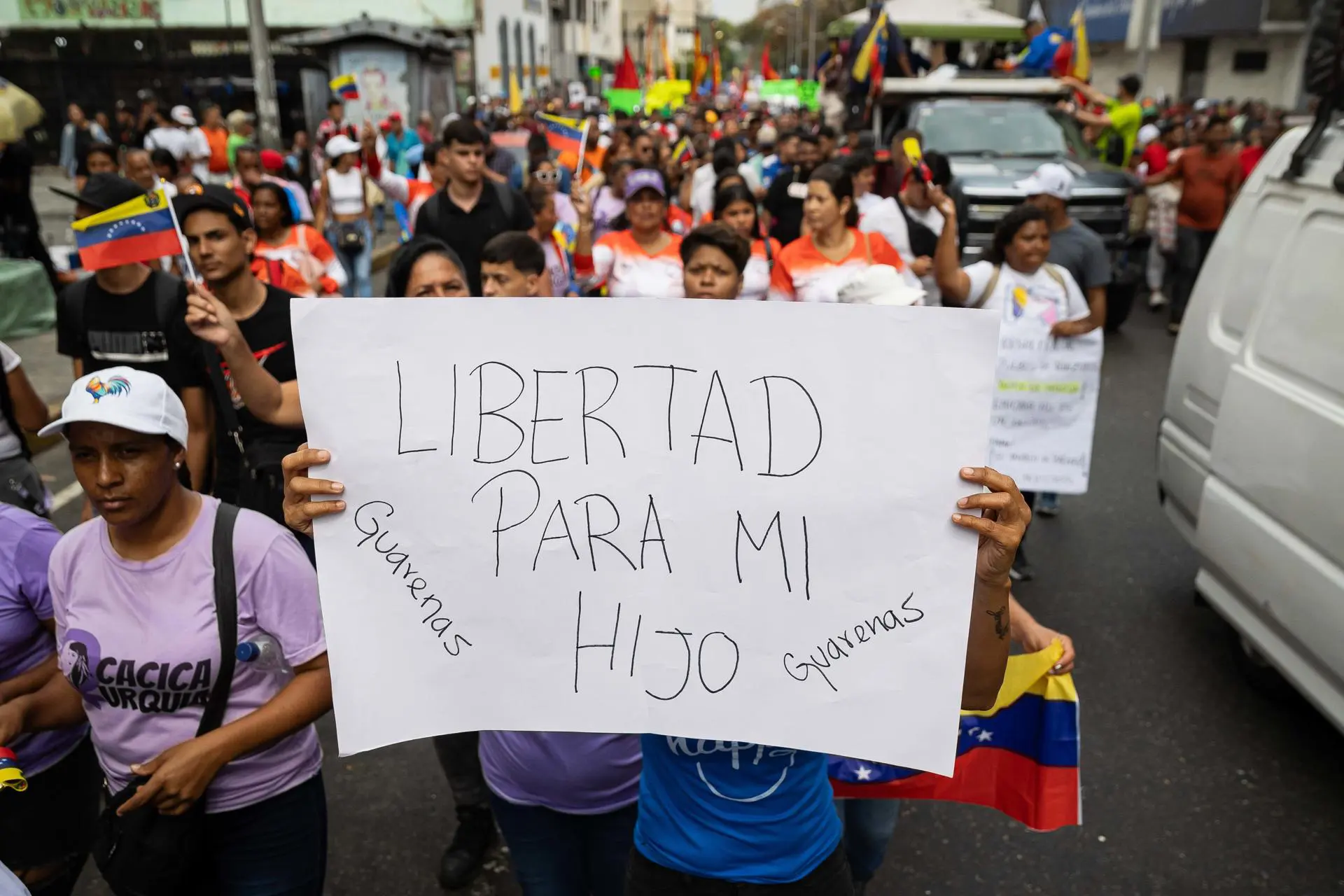Transnational Media Outlets Criminalize Venezuelan Migration: Delgado Arria

Venezuelan migrant kneels upon returning home in gratitude, Feb. 20, 2025.
February 21, 2025 Hour: 2:54 pm
They have reinforced a narrative portraying migrants as problematic and dangerous.
Recently, the administration of U.S. President Donald Trump presented the mass deportation of migrants as part of a purge of foreign criminals and gang members.
RELATED:
Venezuela Repatriates Migrants from the U.S. Under the “Return to the Homeland” Plan
This narrative was reproduced by mainstream media despite the fact that the migrants sent to Guantanamo and eventually repatriated to Venezuela had no criminal records or were considered “Low Risk” by the U.S. Immigration and Customs Enforcement (ICE).
This mass deportation was accompanied by the designation of the “Aragua Train” as a terrorist group. However, Venezuelan forces had already completely dismantled that criminal group some time ago.
Both of these media-driven events justify a U.S. immigration policy that criminalizes poverty and the international mobility of people. During an interview with teleSUR, geopolitical analyst Luis Delgado Arria explained the main argumentative lines of the discourse used to criminalize Venezuelan migration.
“The manipulation of information is part of a cognitive warfare strategy, a disinformation mechanism aimed at imposing a negative perception of Venezuela and its government,” he said.
“While we in the South celebrate the return home of people who were detained without committing any crimes, they in the North insist on criminalizing migration and distorting reality,” Delgado Arria added.
Transnational media outlets controlled by Washington and its allies have reinforced a narrative portraying migrants as problematic and dangerous. This discourse is decontextualized, as it fails to mention the U.S. blockade against Venezuela as the factor that triggered a crisis, forcing thousands of people to leave their homeland in search of better opportunities, he pointed out.
“They want to make people believe that Venezuela is a ‘Failed State’ and that those who leave do so out of desperation. In reality, however, the situation is much more complex,” said Delgado Arria, who pointed out that cognitive warfare also influences the perception of Venezuelan citizens.
“It is a large-scale psychological operation aimed at convincing the population that their country has no future. In this way, they promote collective demoralization and migration,” he said.
To counteract these manipulations, Delgado Arria emphasized the importance of strengthening alternative communication that more accurately reflects facts and the context of the news.
“We need journalism that reports responsibly and does not reproduce narratives that serve the geopolitical interests of powerful nations,” he stressed.
teleSUR/ JF
Sources: teleSUR – EFE






